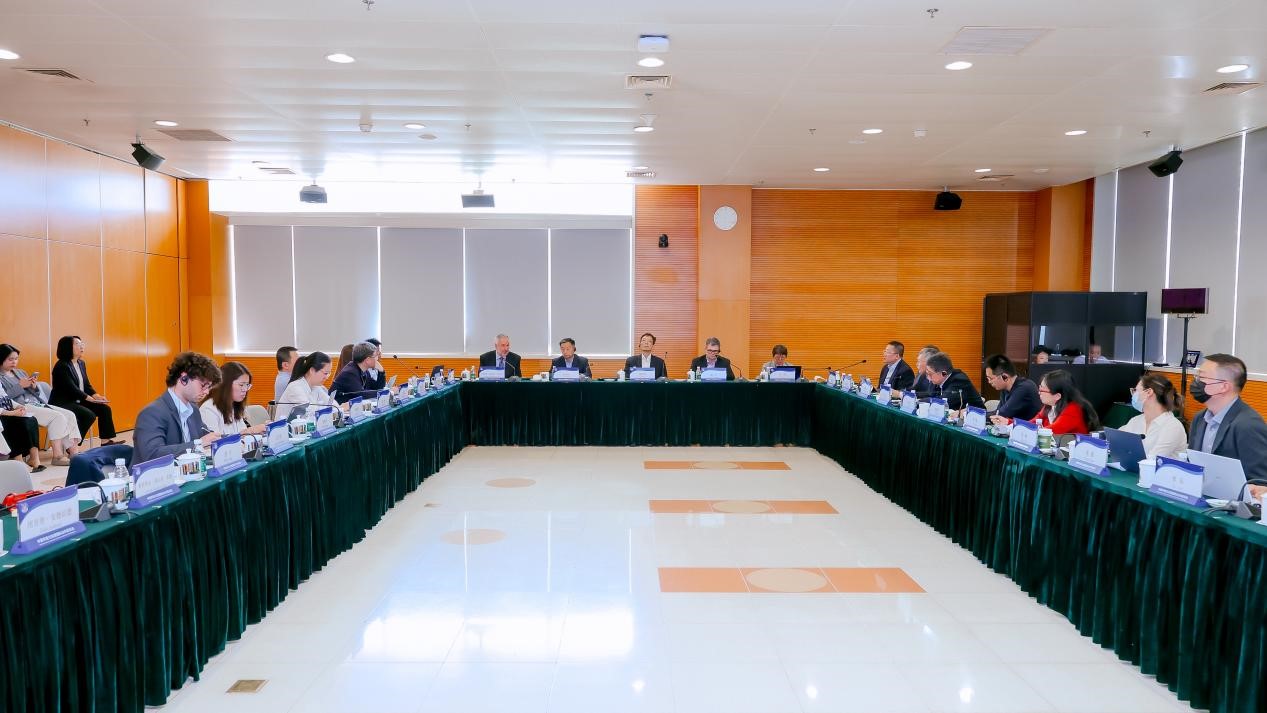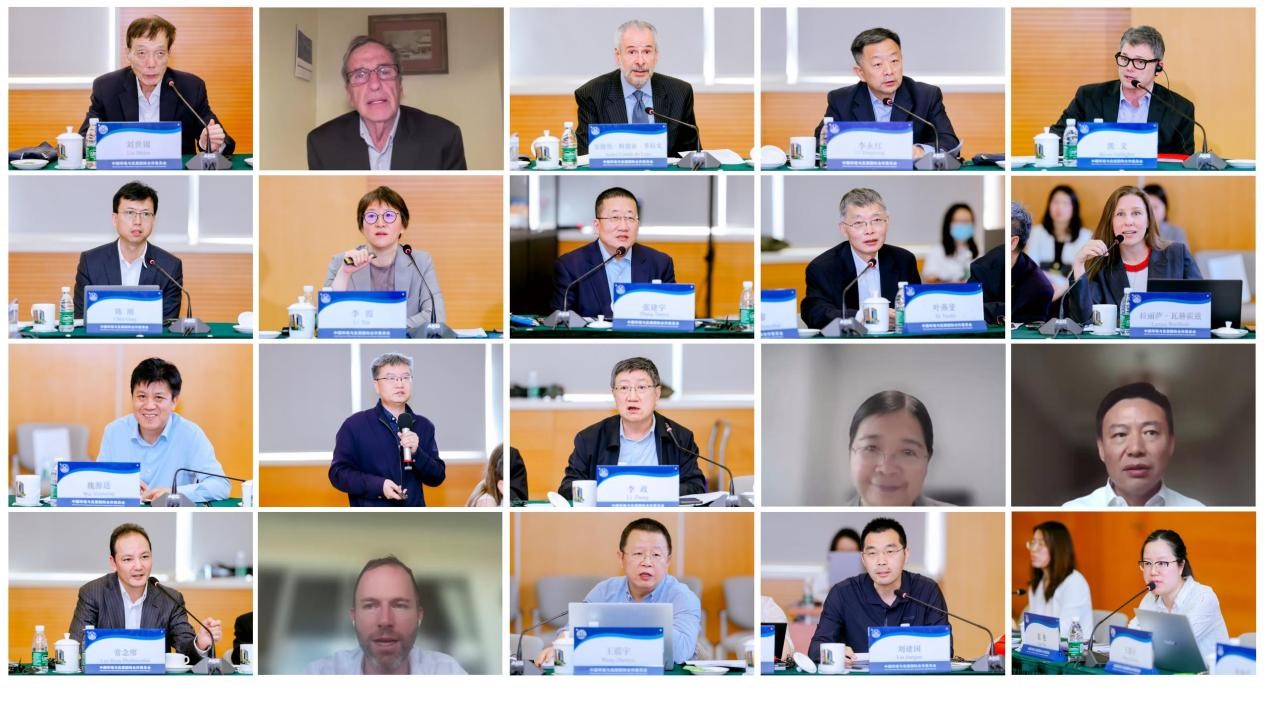
The Workshop for the China Council for International Cooperation on Environment and Development (CCICED) Special Policy Study (SPS) on Green Development Cooperation was held in Beijing on April 17th, 2025. This SPS is co-led by Li Yonghong, Director General of Foreign Environmental Cooperation Center (FECO), MEE on the Chinese side, and Christie Ulman, CCICED Member and President of Sequoia Climate Foundation on the international side. CCICED Chinese Chief Advisor Liu Shijin and CCICED International Chief Advisor Scott Vaughan gave opening remarks. André Aranha Corrêa do Lago, UNFCCC COP30 President-Designate, Secretary for Climate, Energy and Environment at Brazil Ministry of Foreign Affairs delivered a keynote speech. The meeting was moderated by the Chinese Deputy Co-lead Zhang Jianyu, Chief Development Officer of BRI International Green Development Coalition (BRIGC).

Liu Shijin believed that despite the severe challenges posed by the U.S. tariff policy adjustments, economic recession risks, and the retreat of climate policies in some countries to global green transition, green development remains an inevitable trend. As he noted, it is essential to maintain international cooperation and an open attitude. Green development is not only an inevitable choice for addressing climate change but also a crucial engine for promoting global economic recovery. He suggested that the SPS could explore the construction of a new framework for international cooperation in the green and low-carbon sector, working together with the European Union, ASEAN, and the Belt and Road partner countries to promote institutional openness, industrial chain coordination, and green technology cooperation, providing new models and paths for deepening international cooperation in green development.
Scott Vaughan emphasized that in the face of unprecedented global changes, China should actively lead the establishment of a new framework for multilateralism, especially in areas like trade, finance, and climate cooperation that are of concern to developing countries. He pointed out that China is at the forefront in climate technology, and developing countries generally expect China to take a leading role. He suggested that China strengthen its cooperation with Brazil and Indonesia to help these countries achieve their emission reduction goals and provide practical solutions for global climate governance.
André Aranha Corrêa do Lago called for revitalizing global climate governance through multilateral cooperation in his keynote speech. He pointed out that COP30 will focus on promoting the synergistic development of forest conservation and sustainable agriculture by reversing the traditional notion that ‘agriculture is ecologically destructive’ and transforming it into a climate solution. In response to the global challenge of climate financing, he urged breaking away from existing models and innovatively utilizing tools such as multilateral bank cooperation and tax policies to achieve the goal of at least $300 billion annually from developed countries by 2035. He emphasized that China and Brazil’s South-South Cooperation serves as a model, looking forward to deepening cooperation in areas like sustainable agricultural product trade and jointly formulating pragmatic road maps with all parties involved.

Li Yonghong and Kevin Gallagher, International Deputy Co-lead and Director of Global Development Policy Center of Boston University, introduced the research framework, current progress, and future plans of the SPS. Li Yonghong pointed out that since the kick-off meeting, the project has generated preliminary research results, reviewing and analyzing the history, current status, and trends of international cooperation on green development. It has identified key areas such as addressing climate change and energy transition, biodiversity conservation, global value chains and green trade, green industries and technological innovation, and green finance. The project has also summarized China's experiences and achievements in international cooperation on green development through South-South Cooperation, North-South Cooperation, United Nations environmental conventions, and multilateral mechanisms like APEC, BRICS, and the Shanghai Cooperation Organization. Kevin emphasized that in light of the uncertainty in U.S. policy, China, Brazil, and European countries should take leadership roles in climate and environmental issues. He called for the establishment of a multi-polar international economic order and looked forward to China playing a greater role.
Chinese and international SPS experts present current findings of each chapter during the meeting, including Ye Yanfei, CCICED Special Advisor, Former Senior Inspectorate Advisor (DG Level) of Policy Research Bureau of National Financial Regulatory Administration; Chen Gang, Head of BRIGC; Li Xia, Deputy Director General of FECO; Zhang Haibin, Vice Dean of School of International Relations at Peking University; Wang Zhenyu, Director of Research Department, China National Committee for Pacific Economic Cooperation; Kevin Gallagher, International Deputy Co-lead; and Larrisa Wachholz, Senior Fellow of Brazilian Center for International Relations. Other invited Chinese and international experts provided valuable comments during the meeting, including Wei Yuansong, Member of the National Committee of the Chinese People's Political Consultative Conference (CPPCC), Director of the Water Pollution Control Laboratory at the Research Center for Eco-Environmental Sciences of the Chinese Academy of Sciences, and Deputy Director of the Overseas Center for Environmental Science and Technology; Li Zheng, Co-lead of CCICED SPS on Global Climate Governance and Green Inclusive Transformation, and Director of Tsinghua University's Institute of Climate Change and Sustainable Development; Li Qionghui, Deputy Co-lead of CCICED SPS on Major Technological Innovations for Green Transformation, former director of New Energy and Statistics Research Institute of State Grid Energy Research Institute and Christoph Nedopil, Director of Griffith Asia Institute of Griffith University. They shared views on topics including new changes in the current international situation, key areas of international cooperation in green development, typical practice cases, and model innovations. Experts also proposed valuable suggestions for the future work of the SPS research team. Approximately 60 participants from the CCICED Secretariat, project team members, expert advisors, and partners attended the meeting both online and offline.
Copyright © 2020 BRI International Green Development Coalition. All rights reserved.
Address: No.5 Houyingfang Hutong, Xicheng District, Beijing 100035, China
Postcode: 100035
Fax: (86)10-82200539
E-mail: secretariat@brigc.net